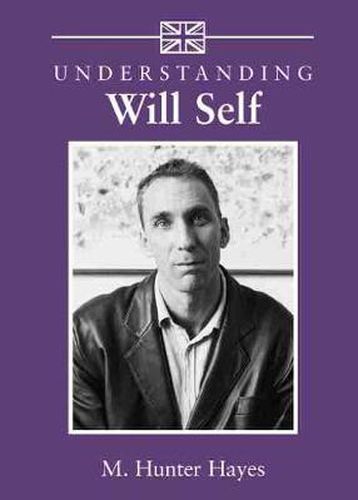Readings Newsletter
Become a Readings Member to make your shopping experience even easier.
Sign in or sign up for free!
You’re not far away from qualifying for FREE standard shipping within Australia
You’ve qualified for FREE standard shipping within Australia
The cart is loading…






Understanding Will Self introduces readers to the satire and expressive ingenuity of a British writer who has garnered an array of awards since the 1991 publication of his first short story collection,
The Quantity Theory of Sanity . In this guide to the well-received but largely unstudied writer, M. Hunter Hayes examines the key themes, narrative strategies, and cultural commentaries that characterize Self’s work. Through close textual analyses, Hayes guides readers through the alternative universe of Self’s writing and maps the interplay between his forays into journalism and fiction. Marked by their combination of seemingly improbable events and quotidian details, Self’s novels, novellas, and short stories examine contemporary English life through a mode of writing that he has aptly termed
dirty magical realism.
Hayes shows how recurring characters have evolved through successive works and in relation with their environments. He places Self’s writing within its historical and critical contexts and uses each chapter to address either a single work or a group of closely connected works. Hayes’ analyses range from well-regarded novels to notable yet uncollected short stories and draw upon secondary critical texts to reassess Self’s critical standing.
$9.00 standard shipping within Australia
FREE standard shipping within Australia for orders over $100.00
Express & International shipping calculated at checkout
Understanding Will Self introduces readers to the satire and expressive ingenuity of a British writer who has garnered an array of awards since the 1991 publication of his first short story collection,
The Quantity Theory of Sanity . In this guide to the well-received but largely unstudied writer, M. Hunter Hayes examines the key themes, narrative strategies, and cultural commentaries that characterize Self’s work. Through close textual analyses, Hayes guides readers through the alternative universe of Self’s writing and maps the interplay between his forays into journalism and fiction. Marked by their combination of seemingly improbable events and quotidian details, Self’s novels, novellas, and short stories examine contemporary English life through a mode of writing that he has aptly termed
dirty magical realism.
Hayes shows how recurring characters have evolved through successive works and in relation with their environments. He places Self’s writing within its historical and critical contexts and uses each chapter to address either a single work or a group of closely connected works. Hayes’ analyses range from well-regarded novels to notable yet uncollected short stories and draw upon secondary critical texts to reassess Self’s critical standing.